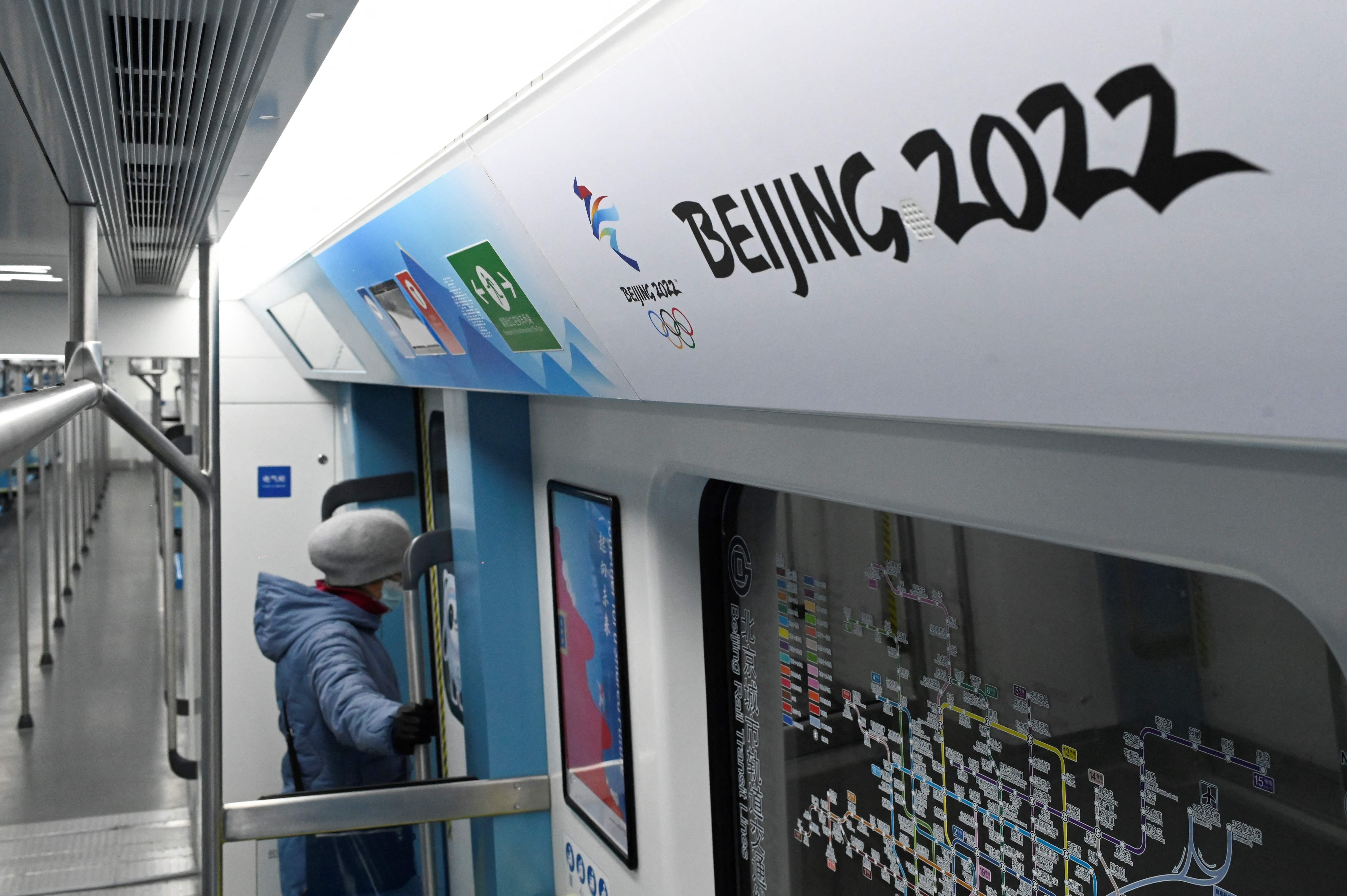Beijing replaces English words on subway signs with romanised Chinese ahead of Winter Olympics
English translations are still shown in brackets next to pinyin or romanised versions

Your support helps us to tell the story
From reproductive rights to climate change to Big Tech, The Independent is on the ground when the story is developing. Whether it's investigating the financials of Elon Musk's pro-Trump PAC or producing our latest documentary, 'The A Word', which shines a light on the American women fighting for reproductive rights, we know how important it is to parse out the facts from the messaging.
At such a critical moment in US history, we need reporters on the ground. Your donation allows us to keep sending journalists to speak to both sides of the story.
The Independent is trusted by Americans across the entire political spectrum. And unlike many other quality news outlets, we choose not to lock Americans out of our reporting and analysis with paywalls. We believe quality journalism should be available to everyone, paid for by those who can afford it.
Your support makes all the difference.Authorities in Beijing have been replacing certain English words on the capital’s subway with romanised Chinese ahead of the Winter Olympics in February.
The English word “station” was replaced with “Zhan,” which is the pinyin or romanised version of the Chinese character.
In some places, station names such as Olympic Park and Terminal 2 of the Beijing airport were changed to “Aolinpike Gongyuan” and “2 Hao Hangzhanlou”.
English translations are still shown in brackets next to the pinyin versions.
Subway stations including Weigongcun and Mudanyuan in Haidian district and Beixinqiao in Dongcheng district have had their names changed as well, Chinese state media Caixin Global reported.
Passengers started noticing the changes as early as 23 December when a social media user asked subway authorities if they could change the word back to “station”.
“Who can understand it? It will only mislead passengers who do not understand Chinese,” the user had written on China’s Twitter-like social media platform Weibo.
Beijing Subway, in a statement last week, said the changes were part of “the city’s ongoing efforts to unify translations of subway station names in accordance with relevant regulations.”
The sudden change in names has irked several residents who took to social media to criticise the move.
China’s state-run Guangming Daily had also weighed in last week, questioning the practicality of the government’s move.
“For foreigners, the overwhelming majority probably don’t recognize pinyin... Therefore, this kind of translation may fall into an awkward situation: Chinese people don’t need it, foreigners don’t understand it,” it said.
The daily’s commentary also mentioned that even some elderly people may not understand pinyin, which was developed in the 1950s and taught in primary schools in mainland China.
Beijing has changed its guidelines for translations several times in the past two decades.
In 2006, authorities issued guidelines for English translations on bilingual public signs which required “all subway names to be capitalised.”
Later in 2018, the city adopted a new set of standards that required the initial of each word of a name to be capitalised.
Alistair Baker-Brian, a British national who lives in Beijing, told CNN that “in some ways, it could actually be better for non-Chinese speakers, and particularly for people who are maybe not very familiar with China.”
The move is also touted to be a pushback against English by the Chinese government amid its ongoing conflict with the west.
In 2020, foreign textbooks in all primary and junior high schools were banned by the country’s education ministry.
Join our commenting forum
Join thought-provoking conversations, follow other Independent readers and see their replies
Comments